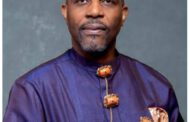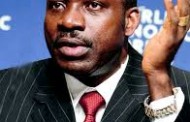President-elect Muhammadu Buhari is awash in a flood of suggestions from the important and the not so important people among us. Each person is offering him his views on what he should do and how he should do it for the full flowering of the critical changes we believe he is in the best position to bring about at the point in our national history.
Everyone means well. It is participatory democracy in action. Their suggestions reflect each person’s hopes and aspirations and dreams. And yes, they speak to their silent fears too. Monumental societal changes often demand stiff sacrifices.
The collective wisdom of the people so freely given to the president-elect cannot save him from the loneliness of facing the mountain. It is his call. Buhari knew why he sought for the office of president. He knew what to make of it to bring about the positive national challenges we are clamouring for. But this is where it gets complicated. He does not have the freedom to do as he would wish. His party’s assumed right to tell him what to do is almost a code cast in stone.
His cabinet might show us where he is headed. We expect Buhari to pack his cabinet with men and women of proven competence and integrity; men and women who are, at least, fairly intolerant of corruption. In recruiting his team, the president-elect shoulders two burdens, none of which is light. His ambition to choose the best people to work with him as a team may be thwarted by his political obligation to reward the party foot soldiers that won the battle for him. Political parties treat such appointments as the spoils of the political war.
Buhari’s American counterpart does not face this problem. He is free to head hunt and bring in the best from all walks of life, irrespective of party affiliations, to make up his dream team. We are far from that stage in our political development. Since the generals wrote the 1979 constitution and put in the clause that the government of the federation should be composed of at least a minister from each state, no president has had the luxury to trim his cabinet to suit his purposes. It must be a crowd with ministers of and ministers for; or ministers of and ministers of state.
The point is that the Nigerian president does not enjoy the freedom to head hunt for the best in choosing the team to work with. Traditionally, each state governor submits three names to the president in the order of the governor’s preference. Our presidents are invariably forced to work with the governor’s men, people they hardly know. The state governors are the most powerful group of people in the country today. Can Buhari ignore their traditional right to choose his team for him? It is a huge problem.
But he can constitute a team of good headhunters who must do more than accept the governor’s men. The team should be able to scrutnise everyone whose name has been submitted to the president and determine each person’s suitability or otherwise. We can even go further and recruit the press as a partner in this. We hardly know our public officers. We do not know their antecedents and what they stand for. That has to change now. We have the right to interrogate those who aspire to serve us in political offices.
Choosing the right team is critical to the integrity of the incoming new administration. The president-elect must make a break with what has become our political tradition since the Second Republic. Let him go for the best wherever they can be found. Yes, his party has the right to make inputs as to who is recruited into the cabinet but my take is that the absolute right of the state governors to pack the president’s team with their own men and women makes nonsense of separation of powers.
As he faces the mountain, the general is confronted with the heavy burden of high expectations. Many of us still see him as a general who can instantly solve all problems by mouthing the magic phrase, with immediate effect.
You cannot blame those whose expectations are unrealistic. When a country emerges from the trauma of poor and indifferent leadership, and faces the possibility of good leadership and change, realistic and unrealistic expectations get easily mixed up. The president-elect has wisely been telling us to moderate our high expectations. He is saying the right thing but I wonder if we are listening.













